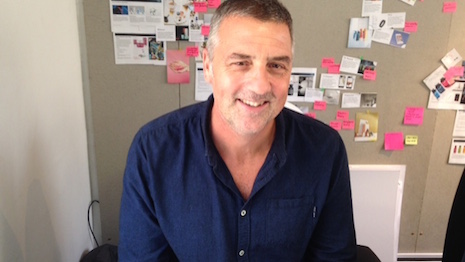 Chats over chatbots
Chats over chatbots
By Steve Tooze Digital technology has become our answer to almost any question, a siren voice offering the global luxury sector undreamt of levels of engagement with whole new audiences. Leading luxury brands have succumbed to its power to dazzle and amaze. And no one can blame them. What is not to like when Rebecca Minkoff can use Google Cardboard’s virtual reality magic to offer every fan a runway seat at its New York Fashion Week show – with Kate Moss as a personal guide? Or when Audi can use the latest HTC Vive VR system to allow car connoisseurs from all over the world to virtually sit behind the wheel of its latest models from the comfort of their sofa? But – and there is most definitely a but – there is a hidden danger here. While no one doubts the many benefits of all things digital, many of us are walking unawares into a mink-lined technology trap. Bulb goes off Our addiction to finding digital solutions to everything is blinding us to the fact that innovation – the activity that will allow us all to future-proof our brands and businesses in a fast-changing luxury landscape – needs to be human-focused. Our research here warns that, over the last two decades, we have started to believe that technology and innovation are simply interchangeable concepts. Perhaps even that they are one and the same thing: to innovate is simply to invent another clever piece of software to do something slick and whizzy with a built-in wow factor. In doing so, we have lost sight of the fact that the machines should exist only to better enable humans to do what they do best – to intuit, to imagine, to innovate. As Karen Dillon, co-author of “Competing Against Luck: The Story of Innovation and Customer Choice” and former editor of Harvard Business Review, says: ‘We’ve been conditioned over the past 15 years to think that innovation is always about technology – that it primarily means creating apps and software and computers that are ever-faster and more powerful, that Big Data or the cloud are where innovation lives today.” So perhaps it is time to consider something almost heretical in our age of digital wonders: that the technology needs to start taking a back seat and becoming no more remarkable than the fact that when you flick a switch, a light comes on. Ms. Dillon sums it up best: “Innovation is absolutely not about creating more and more technology – it’s about how you can get it right for people, so that they can solve the problems they are trying to solve.” Out of the box Luxury brands need to ensure that innovation is a core part of everything that they do, rather than a box-ticking, add-on carried out by a special team locked in the basement. Current success must be regarded with intense suspicion lest it lulls us into complacency because tomorrow’s innovation winners will exist in a constant beta-stage, always read to flex and change and drop what does not work in favor of what does. Human-centric systems need to be introduced to ensure that tomorrow’s luxury brand leaders major on emotional IQ rather than simply the ability to read a balance sheet. Emotional solutions that address consumers’ feelings will be as important to future innovation as hard-nosed economic rationalism. Silos, inside and outside of a business, will have to be cracked open, encouraging brands to build cross-disciplinary teams that challenge olds ways of thinking – and competitors will need to be re-engaged as collaborators. SO, OF COURSE, continue to harness the wonders of the Web and the increasingly sophisticated technologies that have made it such an intrinsic part of our lives. But – and this should come naturally to a luxury sector that has always understood that the intangible value of time and human knowledge always trumps the instant gratification of technology – never lose sight of the fact that it is just another tool, not an end in itself. It is the man or woman sitting at the desk next to you right now who will dream up the game-changing innovation that will make your business a world-beater – not the clever piece of software in the laptop in front of them.
 Steve Tooze is foresight editor at The Future Laboratory
Steve Tooze is foresight editor at The Future Laboratory
